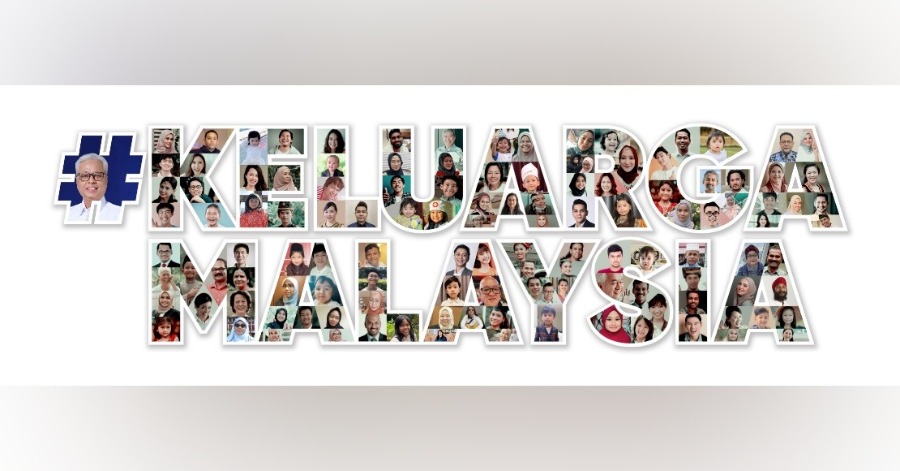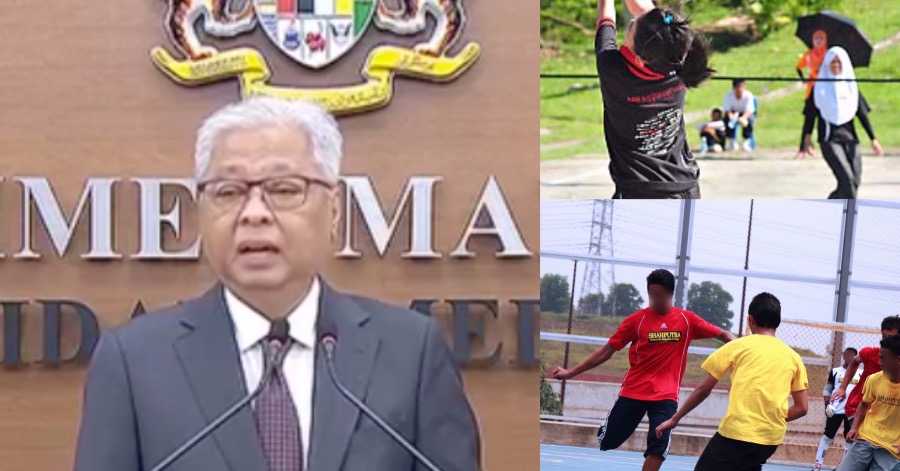Keluarga Malaysia is a crucial agenda for Malaysia. The concept was introduced on Aug 22, 2021, by YAB Datuk Seri Ismail Sabri Yaakob in his inaugural speech as the ninth Prime Minister of Malaysia. Keluarga Malaysia is an approach that is aimed at instilling the spirit and interest of Malaysians in caring for one another and coming together as a family.
Keluarga Malaysia is more than just rhetoric as it serves as an inclusive approach based on three key thrusts, the values and characteristics of which are also reinforced in the Federal Constitution and the National Principle: inclusivity, common ground, and contentment.
Keluarga Malaysia serves as a long-term aspiration in preparing Malaysians to be proactive and resilient in the face of adversity while, at the same time, enabling Malaysia to achieve the status of a developed and high-income country. Nonetheless, none of these would be possible without the Malaysian community working together as a family. A significant example is when the COVID-19 pandemic struck us with inconceivable consequences, affecting all sections of society and sectors worldwide.
The concept of Keluarga Malaysia transcends religious, racial, and ethnic boundaries. Besides, it echoes the idea that Malaysians should uphold the perspective that Malaysians are one family, despite socio-political differences.
The concept is also implemented to indicate that our country’s inclusivity is linked to empowering the Malaysian society through education and the upbringing of Malaysians as a family. This shows that education, whether formal as in schools and universities or informal as in experiences, is among the best instrument to accomplish Keluarga Malaysia.
Communicating the Values of Inclusivity
Inclusivity advances the values of respect and caring for one another as Keluarga Malaysia. Such qualities must be educated and instilled in family institutions and must also be fostered in educational institutions. Students spend most of their time exploring new things in educational institutions such as schools and universities.
In some cases, attending educational institutions could hinder the process of inclusivity as both educators and students come from complex socio-cultural backgrounds that include different ethnicities, linguistics, religions, genders, socio-economics and mental and physical abilities.
Inclusivity requires no one person or group to receive unfair preferential treatment at the expense of another due to favouritism or exclusivity. Instead, everyone should be empowered and encouraged to partake in teaching and learning activities or discussions to contribute to the growth of knowledge and good values of the society. It is a way to learn from each other without being confined to exclusivity, so honesty, reliability, and strong moral principles can be nurtured.
Communicating the Values of Common Ground
The value of common ground denotes the sense of belonging and togetherness to encourage Malaysians to care for one another and be united. Educational institutions should provide an environment that allows educators and students to learn about each other’s differences and uniqueness, as this helps to construct both educators and student’s critical thinking and open minds.
This is because the common ground value reflects individual responsibility and tolerance, which would be difficult to achieve if we refused to get to know each other. Therefore, what is also needed in developing togetherness are kindness and understanding. Common ground is also mirrored when we ensure a harmonious environment, practise honour and dignity, demonstrate caring spirit and recognise the value of being patience.
In addition, tolerance also refers to the process of communicating through the medium of language. Learning a different language requires the willingness of an individual to tolerate the presence of opinions or behaviours that one may detest or disagree with. This may create opportunities to aid interaction with others who use different languages.
Educators and students who learn and practise second and third languages will benefit from communication, self-confidence, and understanding of different cultures. Communication skills in using multiple languages are essential to establish understanding with Malaysians of different racial backgrounds; hence strong ties can be constructed to develop Keluarga Malaysia.
Implementing the Values of Contentment
The third thrust of Keluarga Malaysia is contentment which refers to the values of love and effort to live harmoniously. The values of contentment can be achieved at education institutions by balancing intellectual, emotions, physical and spiritual well-being. Learning necessitates a significant mental process and, thus, requires the ability to cope with stress to not damage self-confidence and positive feelings.
The state of happiness and satisfaction is also reflected through the understanding and appreciation of a country’s history. Awareness and appreciation of the history of a country are crucial to inspire younger generations to be patriotic and devoted to their beloved country.
Accordingly, educational institutions play an essential role not only in delivering subjects in the course of study but also in emphasising the understanding and appreciation of the history of Malaysia’s establishment. It is vital that everyone appreciates the contributions of earlier generations, who had fought and sacrificed their lives for Malaysia, by showing love, respect, and obedience to Malaysia.
Sources: BERNAMA









Leave a Comment